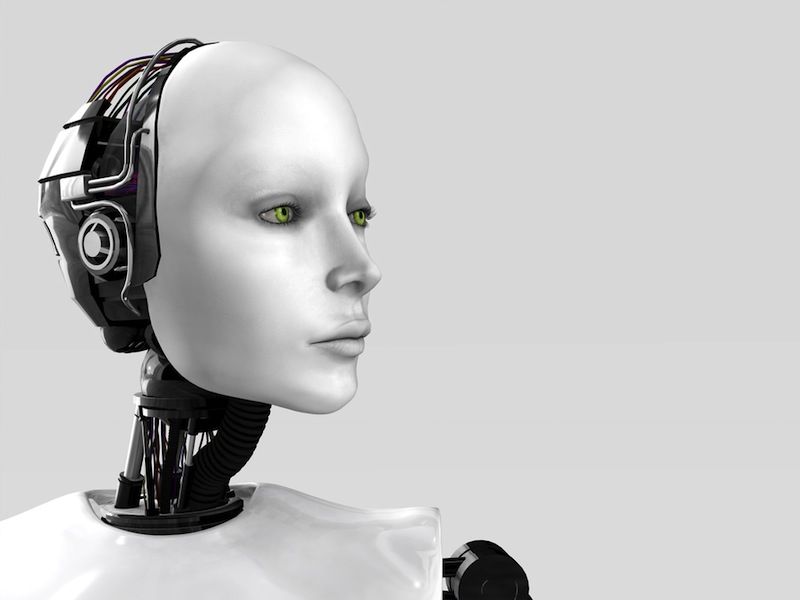
The Rise of Artificial Intelligence in Modern Business: Transforming Industries and Shaping the Future

In the ever-evolving landscape of technology, one phenomenon has taken centre stage and is reshaping the way businesses operate – Artificial Intelligence (AI). From streamlining operations to enhancing customer experiences, AI has become a driving force behind innovation and efficiency. In this blog, we will explore the profound impact of AI on modern businesses and how it is revolutionizing industries across the globe.
Understanding Artificial Intelligence
Before delving into its impact, let’s briefly understand what AI is. Artificial Intelligence refers to the development of computer systems that can perform tasks that typically require human intelligence. This includes learning, reasoning, problem-solving, perception, and language understanding. AI is not a singular technology but a combination of various approaches, including machine learning, natural language processing, and computer vision.
Automation of Repetitive Tasks
One of the most significant contributions of AI to modern businesses is the automation of repetitive and mundane tasks. AI-powered systems can handle routine tasks, allowing human resources to focus on more strategic and creative aspects of their roles. This not only improves efficiency but also reduces the risk of errors associated with monotonous tasks.
For example, in manufacturing, AI-powered robots can carry out repetitive assembly line tasks with precision and speed. In offices, AI-driven software can automate data entry, report generation, and other routine administrative tasks.
Enhanced Customer Experiences
AI has revolutionized the way businesses interact with their customers. Chatbots, powered by AI, provide instant and personalized customer support, improving response times and customer satisfaction. Machine learning algorithms analyze customer behavior and preferences, enabling businesses to offer personalized recommendations and services.
E-commerce platforms, for instance, leverage AI to analyze past purchase history and browsing patterns to recommend products tailored to individual preferences. This not only enhances the customer experience but also increases the likelihood of conversions.
Data Analysis and Decision-Making
AI excels in processing vast amounts of data quickly and deriving meaningful insights. Businesses can leverage AI to analyze customer data, market trends, and operational metrics. This data-driven approach facilitates informed decision-making, helping organizations stay ahead in highly competitive markets.
Predictive analytics, a subset of AI, allows businesses to forecast future trends and make proactive decisions. This is particularly valuable in industries like finance, where AI algorithms can analyze market data to predict investment trends and risks.
Improving Efficiency in Healthcare
In the healthcare sector, AI is making significant strides in diagnostics, drug discovery, and personalized medicine. Machine learning algorithms can analyze medical images, such as X-rays and MRIs, to detect anomalies with high accuracy. This not only expedites diagnosis but also enhances the efficiency of healthcare professionals.
AI is also playing a crucial role in drug discovery by analyzing vast datasets to identify potential drug candidates. Additionally, personalized medicine is becoming more achievable with AI, as algorithms can analyze genetic data to tailor treatments based on individual patient profiles.
Transforming Marketing and Advertising
AI is reshaping the landscape of marketing and advertising by enabling more targeted and personalized campaigns. Algorithms analyze consumer behaviour and preferences to deliver highly relevant advertisements. This not only improves the effectiveness of marketing efforts but also enhances the overall customer experience.
For example, social media platforms use AI to analyze user interactions and deliver content that aligns with individual interests. Advertisers can leverage AI to optimize their campaigns in real time, ensuring maximum reach and impact.
Cybersecurity and Fraud Prevention
As businesses become increasingly digital, the need for robust cybersecurity measures is paramount. AI is playing a crucial role in identifying and mitigating cybersecurity threats. Machine learning algorithms can analyze network patterns to detect abnormal activities, helping prevent data breaches and unauthorized access.
In the financial sector, AI is used to identify fraudulent transactions by analyzing patterns and anomalies in real time. This proactive approach to cybersecurity is essential in safeguarding sensitive data and maintaining the trust of customers.
Shaping the Future of Work
The integration of AI into business operations is reshaping the future of work. While some fear job displacement, AI is also creating new opportunities and roles. The demand for AI specialists, data scientists, and AI ethicists is on the rise as businesses seek to harness the full potential of this transformative technology.
AI-driven tools, such as project management software and collaboration platforms, are enhancing teamwork and productivity in the modern workplace. This shift in the work landscape underscores the need for upskilling and reskilling the workforce to adapt to the evolving demands of the digital era.
Conclusion
The rise of Artificial Intelligence in modern business is not just a trend; it is a paradigm shift that is fundamentally altering how organizations operate and compete. From automating routine tasks to revolutionizing customer interactions and decision-making processes, AI is a catalyst for innovation and efficiency.
As businesses navigate this AI-driven landscape, the key lies in embracing the technology strategically and ethically. The ethical considerations of AI, such as transparency, accountability, and bias mitigation, must be integral to its deployment. By doing so, businesses can unlock the full potential of AI, driving growth, and staying at the forefront of their respective industries.
In conclusion, the rise of AI is not just a technological evolution; it is a revolution that is shaping the future of business in profound ways. As we continue to witness advancements in AI capabilities, businesses that strategically integrate and harness the power of AI will undoubtedly lead the way into a new era of innovation and success.



